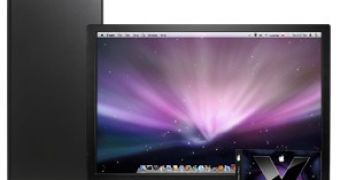Since it started in April 2008 with the launch of the Open Mac (later renamed as the Open Computer) by Psystar Corporation, the Mac clone phenomenon has gathered momentum and now we can witness a global scale move towards migrating OS X to non Apple labeled machines. The Psystar saga continued during the last year and on May 26, 2009, Psystar filed for Chapter 11 bankruptcy (despite this fact, the company is still making and selling the Open Computer machines to its customers).
The most important thing that happened during this last year in the legal war between Apple and Psystar is U.S. District Court Judge William Alsup’s ruling, on February 5, 2009, that gave Psystar the right to modify its lawsuit started against Apple. That meant that Psystar could change the countersuit, from accusing Apple of breaking antitrust laws, to arguing that the Cupertino-based company stretched copyright laws by tying the Mac operating system to its hardware.
That ruling came to meet the words of a Psystar representative, “What if Microsoft said you could only install Windows on Dell computers? What if Honda said that, after you buy their car, you could only drive it on the roads they said you could?”
But Apple’s war with the Mac cloners is not only fought at home. There are four other companies that have entered the Mac cloning business: PearC in Germany, RussianMac in Russia, OpeniMac in Argentina, and Quo Computer in Los Angeles, USA. The approach each of them takes differs: while OpeniMac in Argentina sells its clones not worrying of the legal repercussions and blatantly uses the iMac trademark in the name of its products, the German and Russian companies are arguing that – according to their country’s law – once a product is sold to the user, the user owns that product and decides what he/she wants to do with it.
The other Mac clone maker that just entered the stage this month in Los Angeles, Quo Computer, has a strategy different from anything Apple had to face up until now. Quo Computer plans to open a fully fledged store where to sell its Life Q, Pro Q, and Max Q machines with preinstalled Mac OS X.
This comes as a surprise move because, until Quo Computer arrived to make these statements, Apple only had to deal with companies that chose to sell their Mac clones online. Now, it have to battle Quo Computer, which, not only sales Mac clones, but also plans to open its own “Apple” Store. As Rashantha De Silva, Quo founder, declared, "It's exciting. We are trying to stay as close to Apple as we can with our products. We are trying to mimic things as much as we can. I'm hoping that Apple sees the value in what we are doing."
Although there also are other players to be considered in this battle, the fight between Apple and Psystar is the most interesting mainly because Apple has decided not to sue the other cloners until now. The interest in this can be easily explained if you consider the fact that the outcome of this fight can easily decide the way Apple will react regarding the other four companies that sell clones of its products.
If Apple eventually wins the suit against Psystar, it will go after each of the other Mac cloners and will, most probably, win the war. If, on the other hand, it loses against Psystar, it may not even have a chance in Germany, Russia or Argentina mainly because of the differences between the laws in those countries and the USA law.
There is one important issue at the moment (whether it wins against Psystar or not): Apple still does not have a big chance of forcing its EULA against PearC or RussianMac, given the fact that EU and Russia do not want companies to impose any restrictions on the usage of the sold product after the purchase (in this case, the OS X license). And, since the adoption of Intel processors for the Mac platform, Apple cannot argue that the Mac cloners have copied the hardware.
After all, Apple is a company that buys third-party hardware and builds a machine that runs OS X and this means that everyone can use the same strategy to build their own Mac-like system (and many have already done by building the so-called Hackintoshes).
Despite all these outcomes, one thing is sure: Apple is bound to make a change one way or the other. It will have to either completely block the other Mac-cloning attempts using some method that the Mac cloners will not be able to go around, or accept the way things are going and become a software company.
If you have read the above sentence, I’m sure that the latter hypothesis sounds to you as impossible as it sounds to me because, if one goes back in Apple’s history, then one will definitely understand that Apple as a software company will not do well. It has always based its business on selling hardware to its customers and, most likely, it will not change the strategy that brought it where it is now.
The only thing that we can do now is wait for the outcome of this war and just see what Apple will do next. Will we be seeing OS X-ready machines in stores any time soon? I guess we will, regardless of what Apple wants, considering the fact that Quo Computer is determined to open its own “Apple” Store in Los Angeles.
Who do you think will win the Mac clone war? What will it choose to do once it wins or loses the Psystar battle? Share your opinions on this subject with us and the rest of the readers in the comments.

 14 DAY TRIAL //
14 DAY TRIAL //